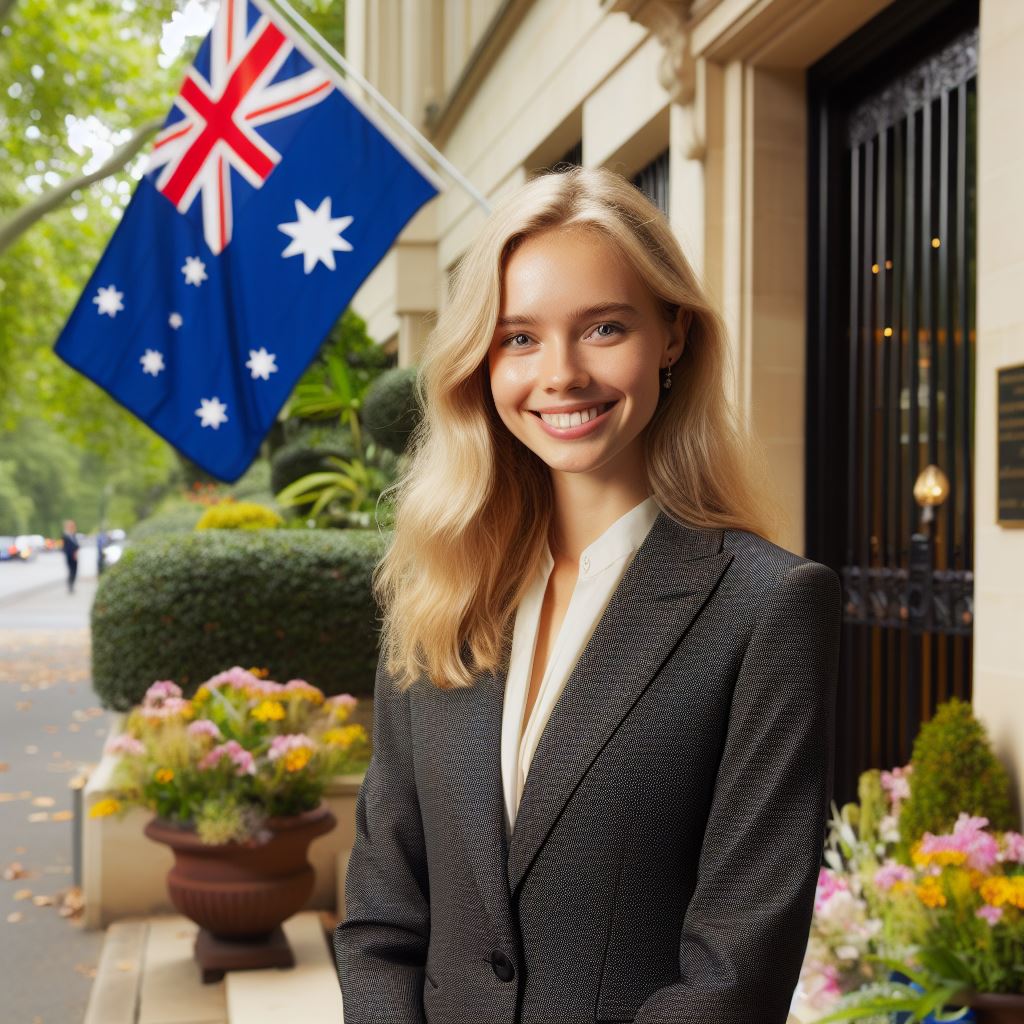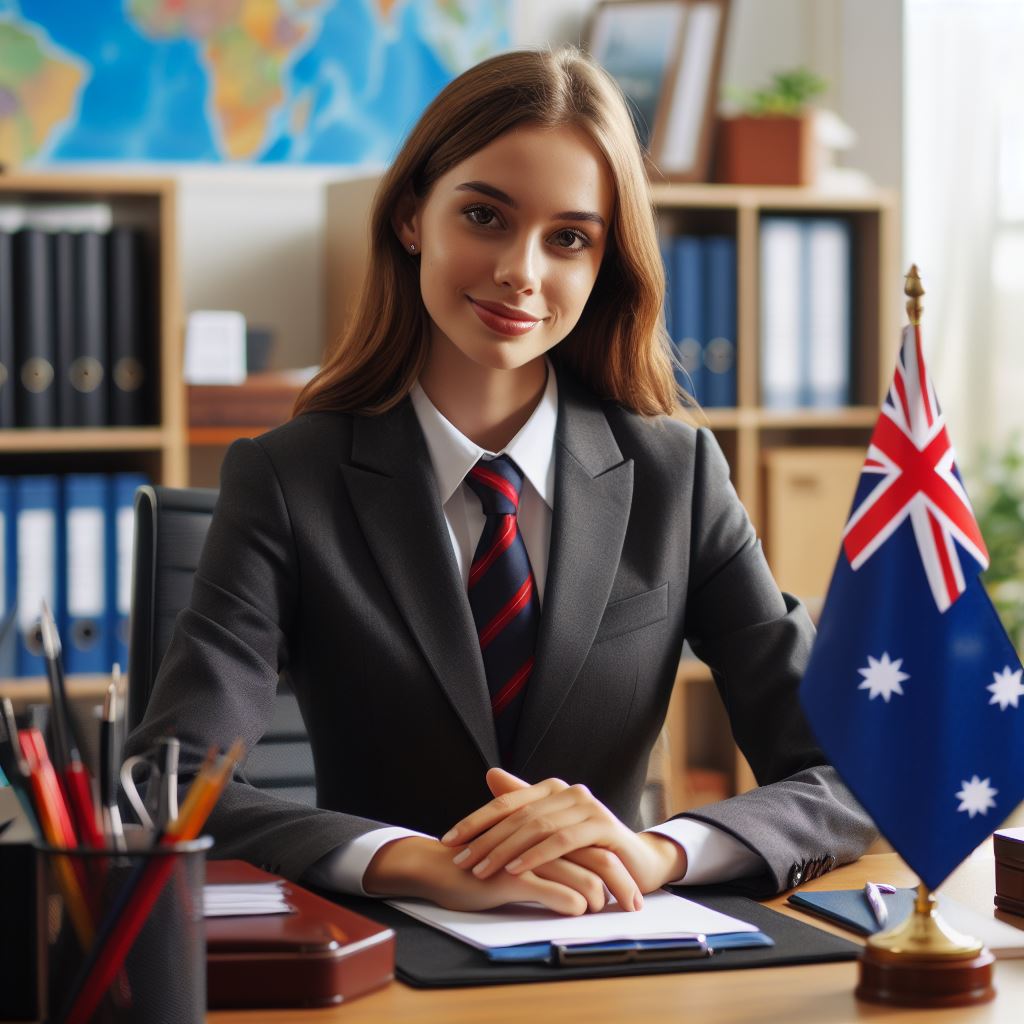Introduction
A. Women in Diplomatic Roles in the AU
Diplomatic roles have traditionally been dominated by men, but the importance and relevance of women in these roles in the AU cannot be overstated.
Women bring unique perspectives and skills to diplomacy that can contribute to more effective and inclusive decision-making processes.
B. Importance and relevance of women in diplomatic roles in AU
Women’s representation in diplomatic roles is crucial for achieving gender equality and empowering women in all spheres of society.
Their presence can diversify diplomatic approaches, leading to the development of more comprehensive solutions to the challenges faced by the AU.
In recent years, there has been progress in increasing female representation in the AU’s diplomatic corps.
This shift towards gender balance recognizes the value of women’s voices, experiences, and ideas in shaping diplomatic strategies that address a wide range of issues, including peace and security, development, and human rights.
By actively involving women in diplomatic roles, the AU can enhance its credibility and legitimacy as an international organization committed to upholding gender equality.
Women diplomats can serve as powerful role models and advocates for gender equality, not only within the AU but also globally.
Moreover, women in diplomatic roles can contribute to bridging the gender gap by promoting women’s rights and empowerment, both within member states and at the international level.
Their presence can inspire other women and girls to pursue careers in diplomacy and contribute to shaping global policies and agendas.
Basically, the inclusion of women in diplomatic roles within the AU is vital for achieving inclusive and sustainable development.
It is essential to continue promoting and supporting women’s active participation in diplomatic decision-making processes to create a more equitable and just world.
Historical Perspective
A. Brief history of women’s participation in diplomacy in AU
- Women’s involvement in diplomacy in AU dates back to its establishment in 2002.
- Initially, women mainly occupied junior and support positions within diplomatic missions.
- However, their role slowly evolved, and they began to hold higher-ranking positions in diplomatic missions.
- Progressively, more women have been appointed as ambassadors, consuls, and heads of diplomatic missions.
- This shift in women’s participation in diplomacy reflects the AU’s commitment to gender equality and inclusivity.
B. Key milestones and achievements
- In 2003, the AU adopted the Solemn Declaration on Gender Equality in Africa, emphasizing women’s rights.
- The AU has implemented various gender mainstreaming strategies to enhance women’s representation in diplomacy.
- Several AU member states have appointed women as their ambassadors to the AU, promoting gender parity.
- For the first time in 2012, the AU Commission had gender parity within its leadership.
- Women’s involvement in conflict resolution and peacekeeping efforts within the AU has also increased significantly.
C. Challenges faced by women in diplomatic roles historically
- Historically, women faced gender biases and stereotypes that hindered their participation in diplomacy.
- Limited access to education and training opportunities further restricted women from entering diplomatic careers.
- Women were often excluded from decision-making processes and were not given equal opportunities for advancement.
- Balancing family responsibilities and diplomatic commitments posed a challenge for women in diplomatic roles.
- Hostile work environments, including harassment and discrimination, impeded women’s progress in diplomacy.
Women in AU diplomacy have made notable progress despite challenges.
AU’s recognition of gender equality is crucial. Policies promote gender mainstreaming. Educational opportunities have increased.
Discriminatory practices are being addressed. Women bring diverse perspectives to diplomacy.
They enhance decision-making processes and representation. Women contribute to peace and regional cooperation.
Continued efforts are needed for sustainable progress. Gender biases must be addressed.
Mentorship programs are essential. A supportive work environment is crucial. Historical perspective shows increased representation.
Despite challenges, women have made significant strides.
AU’s commitment to gender equality is instrumental. Addressing barriers enhances women’s participation.
Present Scenario
A.
Representation of women in diplomatic roles in AU today
- Despite progress, women’s representation in diplomatic roles in AU remains low.
- According to a report, only 31% of African Union Ambassadors are women.
- The AU Commission aims to achieve equal gender representation in diplomatic assignments.
- Countries like Rwanda and South Africa have made significant strides in promoting gender equality.
- Rwanda, for instance, has achieved 61% female representation in its diplomatic corps.
- On the other hand, countries like Egypt and Libya have very few women in diplomatic roles.
B. Initiatives and policies promoting gender equality
- The African Union has implemented various initiatives to promote gender equality in diplomacy.
- The AU Gender Policy, adopted in 2009, aims to integrate gender perspectives in all AU activities.
- The African Union Commission has established a Women, Gender, and Development Directorate.
- The Women, Peace, and Security Agenda promote women’s participation in diplomatic negotiations.
- AU member states have been encouraged to develop national strategies to increase women’s representation.
- The African Women Leaders’ Network works towards empowering women in leadership positions.
C. Notable women diplomats and their contributions
- Nkosazana Dlamini-Zuma from South Africa served as the Chairperson of the AU Commission.
- Dlamini-Zuma spearheaded initiatives to increase women’s representation in diplomatic roles.
- Amina Mohamed from Kenya was the AU’s Permanent Representative to the United Nations.
- Mohamed played a crucial role in advocating for women’s rights and peacebuilding efforts.
- Fatima Kyari Mohammed from Nigeria served as the AU’s Commissioner for Political Affairs.
- Kyari Mohammed actively engaged in conflict resolution and peacekeeping efforts across the continent.
Progress has occurred, but women’s representation in African Union diplomatic roles remains low.
Your Personalized Career Strategy
Unlock your potential with tailored career consulting. Get clear, actionable steps designed for your success. Start now!
Get StartedDespite initiatives promoting gender equality, substantial improvement is still needed.
It is crucial for AU member states to prioritize increasing women’s representation and ensure equal opportunities for their participation in diplomacy.
By including more women in diplomatic roles, the AU can benefit from diverse perspectives and enhance its effectiveness in addressing the continent’s challenges.
Notable women diplomats have already made significant contributions, but more efforts are needed to create a more balanced diplomatic landscape.
Factors Hindering Women’s Progress
A. Institutional barriers and biases
- Gender discrimination in hiring and promotion processes.
- Lack of equal access to training and professional development opportunities.
- Implicit biases that favor men over women in decision-making roles.
- Inflexible work environments and lack of policies to support work-life balance.
- Underrepresentation of women in leadership positions within diplomatic institutions.
B. Lack of mentorship and networking opportunities
- Inadequate support and guidance from senior diplomats and mentors.
- Difficulty in finding role models who have successfully navigated the diplomatic field.
- Lack of formal mentorship programs to connect aspiring women diplomats with experienced professionals.
- Limited networking opportunities that predominantly cater to male diplomats.
- Exclusion from informal networks and influential circles that can provide career advancement prospects.
C. Gender stereotypes and cultural constraints
- Perception of diplomatic roles as traditionally male-dominated and unsuitable for women.
- Expectations of women to prioritize family over career, limiting mobility and availability for overseas postings.
- Prevalence of gender biases that assume women are less capable or qualified for diplomatic positions.
- Limited support and recognition for women diplomats, leading to lower confidence and self-esteem.
- Negative cultural norms and societal pressure that discourage women from pursuing careers in diplomacy.
Significant obstacles hinder women’s progress in diplomatic roles within the African Union (AU). Diplomatic institutions must address biases and barriers.
Equal opportunities in hiring, training, and promotion are essential. Creating inclusive work environments is crucial.
Mentorship and networking are pivotal for success.
Formal programs and networking opportunities are needed. Gender stereotypes and cultural constraints must be challenged.
Efforts should focus on awareness and societal norms.
Recognition and support for women diplomats are crucial. Collective efforts are needed to create inclusive environments.
Read: Day in the Life of an Aussie Police Officer

Success Stories and Inspirations
In this section, we will explore interviews, profiles, exemplary achievements, and lessons from successful women diplomats in the AU.
A. Interviews or profiles of successful women diplomats
- Interview with Ambassador Amina Mohamed, Kenya’s first female ambassador to the AU.
- In-depth profile of Ambassador Fatima Kyari Mohammed, a prominent Nigerian diplomat in the AU.
- Insights from Ambassador Minata Samate Cessouma, the AU’s Commissioner for Political Affairs.
- Interview with Ambassador Monica Juma, Kenya’s Cabinet Secretary for Foreign Affairs.
- Profile of Ambassador Bankole Adeoye, Nigeria’s envoy to the AU.
B. Exemplary achievements and contributions
- Ambassador Amina Mohamed led successful negotiations for the Africa Continental Free Trade Area.
- Ambassador Fatima Kyari Mohammed played a vital role in conflict resolution efforts in Sudan.
- Ambassador Minata Samate Cessouma’s advocacy for gender equality shaped AU’s policies on women empowerment.
- Ambassador Monica Juma facilitated Kenya’s election as a non-permanent member of the UN Security Council.
- Ambassador Bankole Adeoye’s diplomacy fostered stronger partnerships between Nigeria and other AU member states.
C. Lessons to be learned from their experiences
- Importance of perseverance and breaking glass ceilings in male-dominated fields.
- Commitment to fostering collaboration and consensus-building within international organizations.
- Focus on diplomacy as a tool for conflict resolution and promoting peace in Africa.
- Advocacy for gender equality and women empowerment at all levels of decision-making.
- Building strong networks and leveraging partnerships for effective diplomatic outcomes.
By studying the success stories and experiences of these women diplomats, we can gain valuable insights on their journeys and the impact they have made in shaping AU’s diplomatic landscape.
Read: Crisis Management in Diplomacy
Gain More Insights: How to Excel in Public Service Exams
Ongoing Initiatives and Support Systems
A. Government efforts promoting gender equality in diplomacy
- The African Union (AU) has been actively working towards promoting gender equality in diplomacy.
- Several AU member countries have adopted policies and measures to increase the representation of women in diplomatic roles.
- Governments have established initiatives to mentor and support women in their diplomatic careers.
- Gender balance in diplomatic appointments is seen as essential for achieving effective and inclusive diplomacy.
- African governments are actively encouraging women to pursue careers in diplomacy through various awareness campaigns.
B. Non-governmental organizations supporting women in diplomacy
- Several non-governmental organizations (NGOs) are playing a crucial role in supporting women in diplomatic roles in AU.
- These organizations provide platforms for networking, mentorship, and exchange of experiences among women diplomats.
- NGOs organize seminars, conferences, and workshops to address the challenges faced by women in diplomacy.
- They also advocate for gender-responsive policies and work towards eliminating gender-based discrimination in diplomacy.
- Collaboration between NGOs and AU member countries helps create a conducive environment for women diplomats.
C. Scholarships, grants, and fellowships for aspiring women diplomats
- Many scholarships, grants, and fellowships are available specifically for women aspiring to become diplomats.
- These financial support systems aim to facilitate their education and training in diplomatic studies.
- Scholarships are often granted by governments, international organizations, and educational institutions to encourage women’s participation.
- These opportunities provide women with the necessary resources and skills to pursue successful diplomatic careers.
- The availability of scholarships, grants, and fellowships demonstrates the commitment towards gender equality in diplomacy.
In review, ongoing initiatives and support systems play a crucial role in enhancing the representation of women in diplomatic roles in the AU.
Government efforts, non-governmental organizations, and scholarships, grants, and fellowships all contribute to promoting gender equality and providing necessary support to aspiring women diplomats.
The collaboration between various stakeholders is necessary for creating an inclusive and diverse diplomatic corps that reflects the African Union’s commitment to gender equality.
Read: Diplomatic Immunity: The Basics
Uncover the Details: Election Cycles: Understanding Australian Politics
Recommendations for Further Progress
A. Steps to increase representation of women in diplomatic roles
- Promote gender inclusivity in recruitment processes and improve gender diversity at all levels.
- Implement quotas or targets to ensure a minimum percentage of women in diplomatic positions.
- Strengthen mentoring programs to support and guide women in their diplomatic careers.
- Establish networks and forums where women diplomats can share experiences and build strong alliances.
- Collaborate with other organizations and countries to exchange best practices and strategies
B. Training and capacity-building programs for aspiring women diplomats
- Create specialized training programs that focus on diplomatic skills and negotiation techniques.
- Offer scholarships and grants for women pursuing diplomatic studies and degrees.
- Provide mentorship opportunities with experienced women diplomats to enhance practical knowledge
- Organize workshops and seminars to address specific challenges faced by women in diplomatic roles.
- Encourage participation in international conferences and forums to develop diplomatic networks.
C. Encouraging work-life balance and flexible policies:
- Implement flexible work arrangements such as telecommuting and flexible working hours.
- Offer childcare facilities and support for diplomats with families.
- Promote a healthy work-life balance to prevent burnout and enhance employee well-being.
- Introduce policies that address gender-based discrimination and harassment in the workplace.
- Provide maternity and paternity leave policies that support both parents in their roles.
By implementing these recommendations, significant progress can be made to increase the representation of women in diplomatic roles within the African Union.
It is essential for member states and the African Union Commission to work together collaboratively to achieve gender parity and promote equal opportunities in diplomacy.
Read: Understanding Ranks in Australian Police Force
Stand Out with a Resume That Gets Results
Your career is worth more than a generic template. Let us craft a resume and cover letter that showcase your unique strengths and help you secure that dream job.
Get HiredDelve into the Subject: Balancing Act: Diplomacy & Politics
Learn More: Technology Used by Australian Police Today
Conclusion
A. The importance of women in diplomatic roles in AU
Women have made significant contributions to diplomatic efforts in AU, bringing diverse perspectives and skill sets.
Their unique experiences and knowledge have enhanced decision-making and negotiation processes, leading to more inclusive and effective diplomacy.
By breaking traditional gender barriers, women have paved the way for increasing gender equality in the field of international relations.
B. Encouragement for more women to pursue careers in diplomacy
The representation of women in diplomatic roles is still far from adequate, and more efforts are needed to bridge this gender gap.
Encouraging and supporting young women to enter and succeed in diplomatic careers will enable them to contribute their skills and perspectives.
By diversifying diplomatic teams, better solutions can be found for complex global challenges, promoting peace and prosperity for all.
C. Final thoughts and call for action
It is crucial for governments, organizations, and society as a whole to recognize the value of women in diplomacy.
Creating mentoring programs, providing scholarships, and establishing quotas can help empower women to pursue diplomatic careers.
By amplifying the voices of women in diplomatic roles, we can build a more inclusive and sustainable world.
It is time for action.




